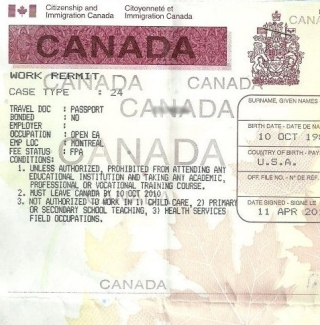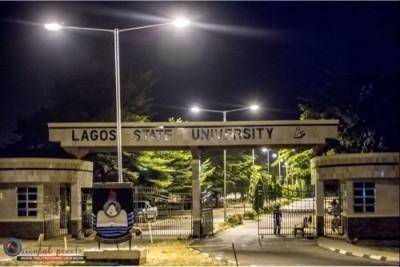Canada, New Zealand, and Australia end ‘flagpoling’ by Nigerians and other international students


Nigerians hoping to further their education in Canada, Australia, and/or New Zealand face difficult times, as the countries have implemented regulations preventing international students from finding work after graduation and applying for offshore visas.
According to Financial Express, Canada’s new border application ban might cause delays in acquiring work permits, limiting students’ ability to begin their careers immediately after graduation.
The post-graduate work permit (PGWP) permits students who have graduated from a participating Canadian postsecondary institution to earn relevant Canadian work experience, which can help them become permanent residents of Canada.
However, the new law has restricted this rule, reducing the opportunity for international students graduates to get significant Canadian work experience.
The number of international students in Canada increased in 2023, owing to the country’s easy access to work and residence opportunities. The new legislation may hinder this growth by adding uncertainty and delays to the post-graduation phase.
The authorities emphasised the importance of international students transitioning from education to employment, noting that delays in this process might result in financial stress and missed job opportunities.
“The end of flagpoling means longer wait times for work permits, potentially disrupting plans to begin working right after graduation. This could make Canada less attractive as a study destination, affecting its competitiveness in the global education market,” it stated.
The government however counseled that students must adapt by preparing well in advance for the post-graduation phase. Starting early in their educational journey, students can take proactive steps to ensure a seamless transition to the workforce, despite potential delays in obtaining work permits.
“Engaging in career counseling services, attending job fairs, and connecting with potential employers during their studies can provide significant advantages.
“Additionally, maintaining updated documentation and closely monitoring any policy updates from Immigration, Refugees, and Citizenship Canada (IRCC) can prevent unforeseen complications,” the authorities noted.
Similarly, New Zealand has further restricted work visa rules to target specific kinds of Accredited Employer Work Visa (AEWV) holders.
Individuals with AEWVs in jobs classified at levels 4 and 5 by the Australian and New Zealand Standard Classification of Occupations (ANZSCO) and without a pathway to residency can no longer sponsor work, visitor, or student visa applications for their partners and dependent children, according to a website announcement from Immigration New Zealand.
“This change is part of a broader suite of amendments to the AEWV scheme introduced earlier this year, reverting the settings to those similar to the previous Essential Skills Work Visa,” according to the release.
Foreigners planning to study in the country should be aware that the government allows partners and dependent children of AEWV holders to apply independently for New Zealand visas, such as AEWV or international student visas, provided they meet the necessary requirements.
“The new rules which already took effect on June 26, will not affect: Individuals already holding visas as partners or dependent children. AEWV holders in ANZSCO level 4 and 5 roles with a pathway to residency, such as those under the Green List or sector agreements with residence pathways, and individuals earning at least 1.5 times the average salary threshold for the Skilled Migrant Category,” the statement reads in part.
In Australia, a similar issue exists, since the government has mandated that all visitor visa holders, temporary graduate visa holders, and other specified visa holders be barred from applying for student visas while in Australia.
However, Australian authorities stated that student visa applications lodged in the country before July 1, 2024 will be processed.
“Holders of working holiday maker and work and holiday visas will also be not be impacted,” according to the the government.
As a result of the new development, the Australian government has made it clear that temporary graduates should either leave the country at the end of their visa or pursue job opportunities that may lead to employer-sponsored visas or permanent residency if they desire to remain in Australia.
These changes, the government say, support a range of other changes that are being implemented for temporary graduate visa holders on July 1, 2024.
“These include significantly shorter post-study work rights, reduced age limits from 50 to 35 years of age, and increased English Language requirements which were implemented in March.
“One can apply for their student visa offshore and travel to Australia to wait for the outcome of their visa application. However, they need to hold or be granted a visa that allows them to enter and remain in Australia for that time.
“Also, offshore student visa applicants cannot get a bridging visa to stay in Australia while waiting for their application to be processed. According to the new rules, visitor visa holders may continue to study for up to three months while holding their visa. Those intending to study for periods longer than three months will need to apply for a Student visa outside Australia.”





